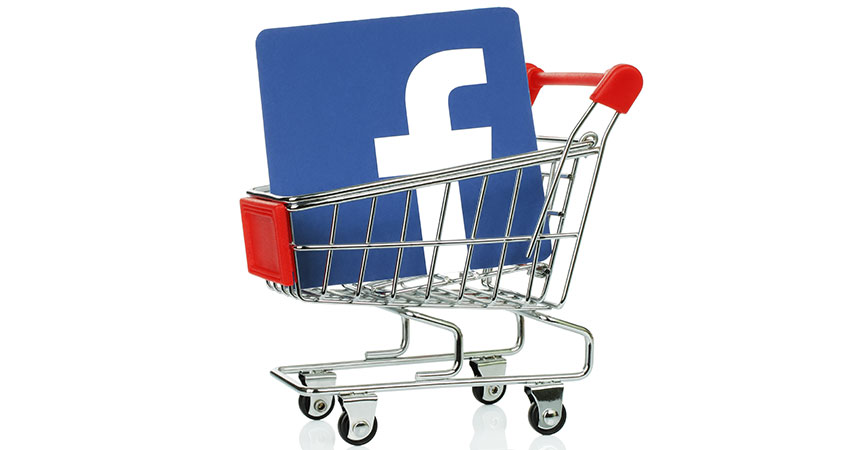After months of stay-at-home orders have driven small and mid-sized businesses to struggle or even shutter, Facebook announced the opening of Facebook Shops. Shops, targeted at these smaller businesses, allows sellers to quickly set up a digital storefront in a channel where their consumers are likely already engaging with their brands.
The offering builds on Facebook Marketplace and Instagram Shopping, adding in the capability for customers to engage directly with sellers through Instagram Direct, Facebook Messenger and WhatsApp to ask questions about the product, get support, track deliveries and more. Facebook Shops also allows sellers to deploy their storefronts across all Facebook-owned apps in one unified shopping experience.
Pinterest and even TikTok have also launched direct commerce capabilities on their platforms. While social channels make up only a small portion of ecommerce sales, consumer adoption has grown. In fact, eMarketer anticipates more than 75 million U.S. consumers will make at least one purchase through social channels in 2020, an increase of 17% from 2019. With the average Internet user spending nearly 2.5 hours per day on social media and an overall increase in desire to shop online, it’s only natural that these platforms will see an uptick in commerce usage.
Although Facebook Shops is being marketed to potentially distressed small businesses, large Consumer Packaged Goods (CPG) companies should be paying attention as they think through their own strategies, especially given the shift in consumer shopping behavior caused by COVID-19. Data from ACI Worldwide showed a year-over-year increase of 74% in online transaction volume.
Specific to CPG companies, one of the biggest shifts has been the increased usage of online grocery. According to a report by Brick Meets Click and ShopperKit, 26% of respondents said they used an online grocery service for the first time, and 43% said they were likely to continue to do so after the pandemic ends.
To prepare for the “new normal” and be present where consumers prefer to shop, CPG companies will need to accelerate toward digital transformation by opening new routes to market to meet these dramatic and likely long-lasting shifts in consumer needs and behaviors. They should take a holistic approach to commerce, integrating and aligning digital channels including Direct to Consumer (DTC) offerings expanded across multiple touchpoints, including social media.
Social Commerce is a Key Aspect of DTC Strategy
As consumers shift more of their purchase journey online, CPG companies need to ensure they are providing the best possible customer experience. Unlike DTC via a brand’s website, social commerce platforms have the benefit of being where consumers are already spending their time and often expressing their brand and product preferences.
Social commerce tools like Facebook Shops allow for the commerce interaction to be embedded into experiences and engagements that are already relevant, and users don’t need to go to separate sites and apps for each brand. Rather than displaying their entire catalog, brands can leverage data and insights from the platform to serve up the most relevant and likely-to-convert products and services to their target audience. The purchase process happens within the app, keeping consumers in the moment and allowing them to quickly make the transaction and them resume their social activity.
Facebook Shops also has the benefit of the embedded messaging platforms in both Facebook and Instagram as well as the connection with WhatsApp. These tools allow consumers to directly engage with brands for product information, questions, shipping updates, usage support and returns, all within channels where they’re already comfortable.
Understanding the Full Value of DTC
One of the main reasons that CPG companies delay implementing DTC strategies or investing in new channels like Facebook Shops is a lack of understanding of the full value DTC can bring. Measuring value is often done simply in terms of revenue streams, and the case for investment is rarely made after the costs of servicing the business are factored in. A DTC offering that spans multiple touchpoints, including social media, can bring value much beyond revenue.
In terms of social commerce specifically, the direct relationship with these platforms allows CPG companies to collect rich consumer insights on both stated preferences and behaviors. This lets the brand anticipate consumer needs and provide more personalized products and experiences. The relationship can also drive deeper brand loyalty and increase customer lifetime value (CLV).
It is critical for CPG companies to evaluate the various methods for going direct as social commerce usage increases and digital transformation continues to take priority. As they assess these methods, it is important to factor in business goals and evaluate required resources.
This will help them find the right model that can be adapted to meet continuously evolving consumer needs and get the most value from their investment. Facebook Shops’ low barrier to entry for DTC can enable CPG companies to quickly and easily begin these assessments.
Kristen Groh is GVP and Managing Partner at Publicis Sapient

